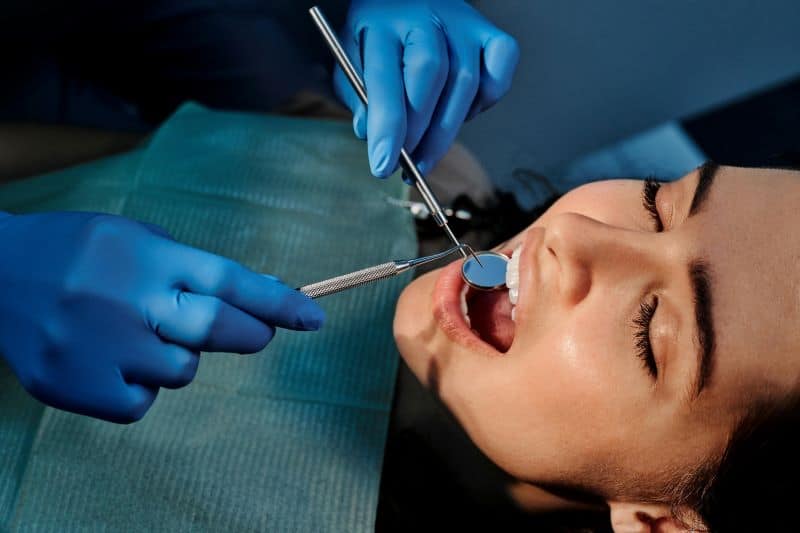
28 Mar The Connection Between Oral Health and Respiratory Issues
The Connection Between Oral Health and Respiratory Issues: Exploring the Link
Understanding the connection between oral health and respiratory issues is crucial for overall well-being. While these two areas may seem unrelated, emerging research suggests otherwise. This article delves into the intricate link between oral health and respiratory problems, shedding light on the importance of proper dental care in maintaining respiratory wellness.
Oral Health: A Gateway to Respiratory Well-being
Understanding the importance of oral health extends beyond maintaining a bright smile. It serves as a foundational pillar for overall well-being, influencing various bodily systems. Neglecting oral hygiene not only impacts dental health but can also trigger a cascade of health issues, including respiratory complications. Therefore, prioritizing oral health is essential for achieving optimal respiratory wellness.
The Role of Oral Bacteria in Respiratory Health
The mouth harbors a diverse ecosystem of bacteria, some of which can pose risks when they migrate to the respiratory tract. Oral bacteria, if left unchecked, have the potential to cause infections and worsen pre-existing respiratory conditions like asthma and COPD. This migration occurs through inhalation or aspiration, highlighting the interconnectedness of oral and respiratory health.

Periodontal Disease and Respiratory Conditions
Periodontal disease, characterized by inflammation and infection of the gums, is a significant risk factor for respiratory infections and diseases. The inflammatory response associated with periodontal disease not only affects the gums but can also compromise respiratory function. Individuals with untreated periodontal disease are more susceptible to respiratory ailments, emphasizing the importance of addressing oral health issues promptly.
Impact of Poor Oral Health on Pneumonia Risk
Pneumonia, a serious respiratory infection, can be influenced by oral health status. Poor oral hygiene increases the likelihood of oral pathogens being aspirated into the lungs, leading to pneumonia. Vulnerable populations, such as the elderly and those with weakened immune systems, are particularly at risk. Maintaining good oral hygiene practices is crucial for reducing the risk of pneumonia and promoting respiratory wellness.
Maintaining Oral Health for Respiratory Wellness
Maintaining optimal oral health is key to safeguarding respiratory wellness and overall health. Simple yet effective oral hygiene practices can significantly reduce the risk of respiratory issues associated with poor oral health. By adopting a proactive approach to oral care, individuals can mitigate the risk of respiratory complications and enjoy improved overall well-being.
Effective Oral Hygiene Practices
Regular brushing, flossing, and routine dental check-ups form the foundation of effective oral hygiene. These practices help remove plaque and bacteria from the teeth and gums, preventing the proliferation of harmful microorganisms. By maintaining a clean and healthy oral environment, individuals can minimize the risk of oral pathogens reaching the respiratory tract and causing infections.
Importance of Dental Visits in Respiratory Care
Routine dental visits play a crucial role in both oral and respiratory care. Dentists are trained to detect early signs of gum disease and other oral health issues, allowing for timely intervention. By addressing oral health issues promptly, dentists help prevent potential complications that may impact respiratory function. Therefore, regular dental check-ups are essential for maintaining optimal oral and respiratory wellness.

Healthy Lifestyle Habits for Oral and Respiratory Wellness
In addition to proper oral hygiene practices, adopting a healthy lifestyle contributes to both oral and respiratory wellness. A balanced diet rich in essential nutrients supports gum health and strengthens the immune system, reducing the risk of oral and respiratory infections. Avoiding tobacco use is equally important, as smoking is a significant risk factor for both gum disease and respiratory conditions. By embracing healthy lifestyle habits, individuals can optimize their oral and respiratory health, enhancing their overall quality of life.
FAQs (Frequently Asked Questions)
Does Poor Oral Health Contribute to Respiratory Infections?
Poor oral health indeed contributes to an increased risk of respiratory infections. When oral hygiene is neglected, oral bacteria can thrive and multiply in the mouth. Over time, these bacteria can travel beyond the oral cavity and enter the respiratory tract through inhalation or aspiration. Once in the respiratory system, these bacteria can cause infections, leading to respiratory issues such as bronchitis or pneumonia. Therefore, maintaining good oral hygiene practices is essential not only for dental health but also for reducing the risk of respiratory infections.
How Often Should I Visit the Dentist to Maintain Oral and Respiratory Health?
To ensure optimal oral and respiratory wellness, it is recommended to visit the dentist at least twice a year for routine check-ups and cleanings. These regular dental visits allow dentists to assess your oral health, detect any signs of gum disease or other dental issues, and provide professional cleaning to remove plaque and tartar buildup. By staying proactive with dental appointments, you can address any oral health concerns promptly and maintain good respiratory health.
Can Gum Disease Exacerbate Existing Respiratory Conditions?
Yes, gum disease has been closely linked to worsening symptoms in individuals with existing respiratory conditions such as asthma and COPD. The inflammation associated with gum disease can exacerbate inflammation in the airways, making it more challenging for individuals with respiratory conditions to breathe. Moreover, the presence of oral bacteria from gum disease can increase the risk of respiratory infections, further aggravating respiratory symptoms. Therefore, managing gum disease through proper oral hygiene and regular dental care is crucial for minimizing the impact on respiratory conditions.
Is There a Connection Between Oral Health and Pneumonia Risk?
Indeed, poor oral health can heighten the risk of pneumonia, particularly in vulnerable populations. Oral bacteria, when aspirated into the lungs, can cause infections that lead to pneumonia. Individuals with compromised immune systems or underlying health conditions are especially susceptible to pneumonia triggered by oral pathogens. Therefore, maintaining optimal oral hygiene and seeking timely dental care are essential for reducing the risk of pneumonia and promoting respiratory wellness.
What Role Do Oral Bacteria Play in Respiratory Health?
Oral bacteria play a significant role in respiratory health, albeit a negative one when oral hygiene is inadequate. These bacteria can travel from the mouth to the respiratory tract, where they can cause infections and contribute to respiratory ailments such as bronchitis or pneumonia. By practicing good oral hygiene, including regular brushing, flossing, and dental visits, you can minimize the presence of oral bacteria and protect your respiratory health.
How Can I Improve My Oral Hygiene to Protect My Respiratory Health?
Improving your oral hygiene is essential for safeguarding respiratory wellness. Practicing regular brushing at least twice a day, flossing daily, and using mouthwash can help remove plaque and bacteria from your teeth and gums. Additionally, scheduling routine dental visits every six months for professional cleanings and check-ups allows your dentist to assess your oral health and address any concerns promptly. By incorporating these oral hygiene practices into your daily routine, you can protect both your dental and respiratory health.
Why is it Important to Address Oral Health for Overall Well-being?
Addressing oral health is crucial for overall well-being because the mouth serves as a gateway to the body. Poor oral hygiene can lead to various health issues beyond just dental problems, including respiratory complications, cardiovascular diseases, and diabetes. By prioritizing oral health, individuals can significantly reduce the risk of developing systemic conditions and maintain their overall health and wellness.
What Steps Can I Take to Prevent Oral Bacteria from Affecting My Respiratory Health?
To prevent oral bacteria from affecting respiratory health, it’s essential to maintain good oral hygiene practices. This includes brushing your teeth at least twice a day with fluoride toothpaste, flossing daily to remove plaque and food particles between teeth, and using an antimicrobial mouthwash to kill bacteria. Additionally, scheduling regular dental check-ups and cleanings can help detect and address any oral health issues before they escalate and impact respiratory wellness. By incorporating these preventive measures into your daily routine, you can minimize the risk of oral bacteria spreading to the respiratory tract and causing infections.

In Conclusion
In conclusion, the connection between oral health and respiratory issues underscores the importance of prioritizing dental care for overall well-being. By adopting effective oral hygiene practices and seeking routine dental check-ups, individuals can mitigate the risk of respiratory complications associated with poor oral health. Remember, a healthy mouth is not only vital for a confident smile but also plays a significant role in respiratory wellness.


Sorry, the comment form is closed at this time.